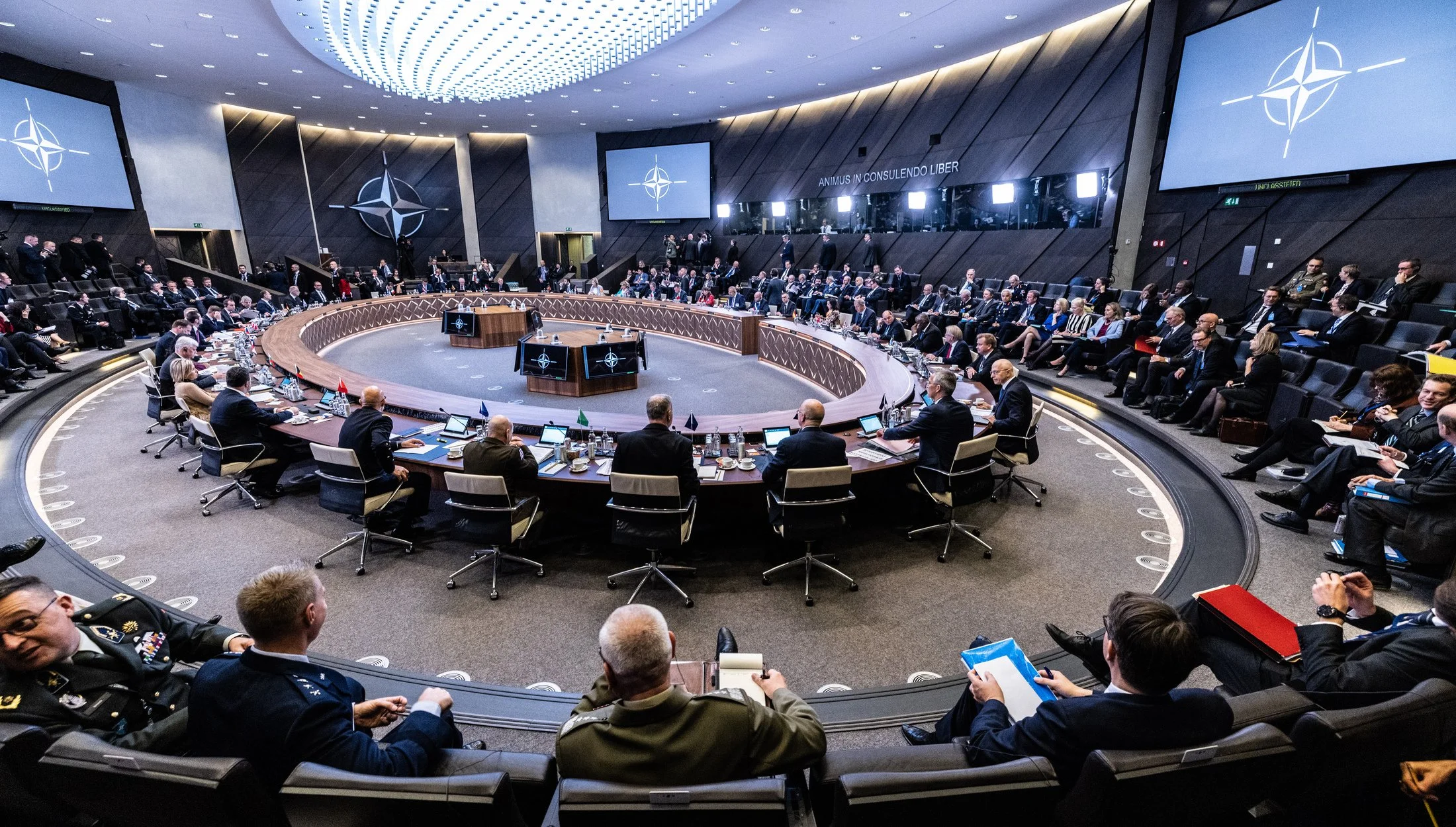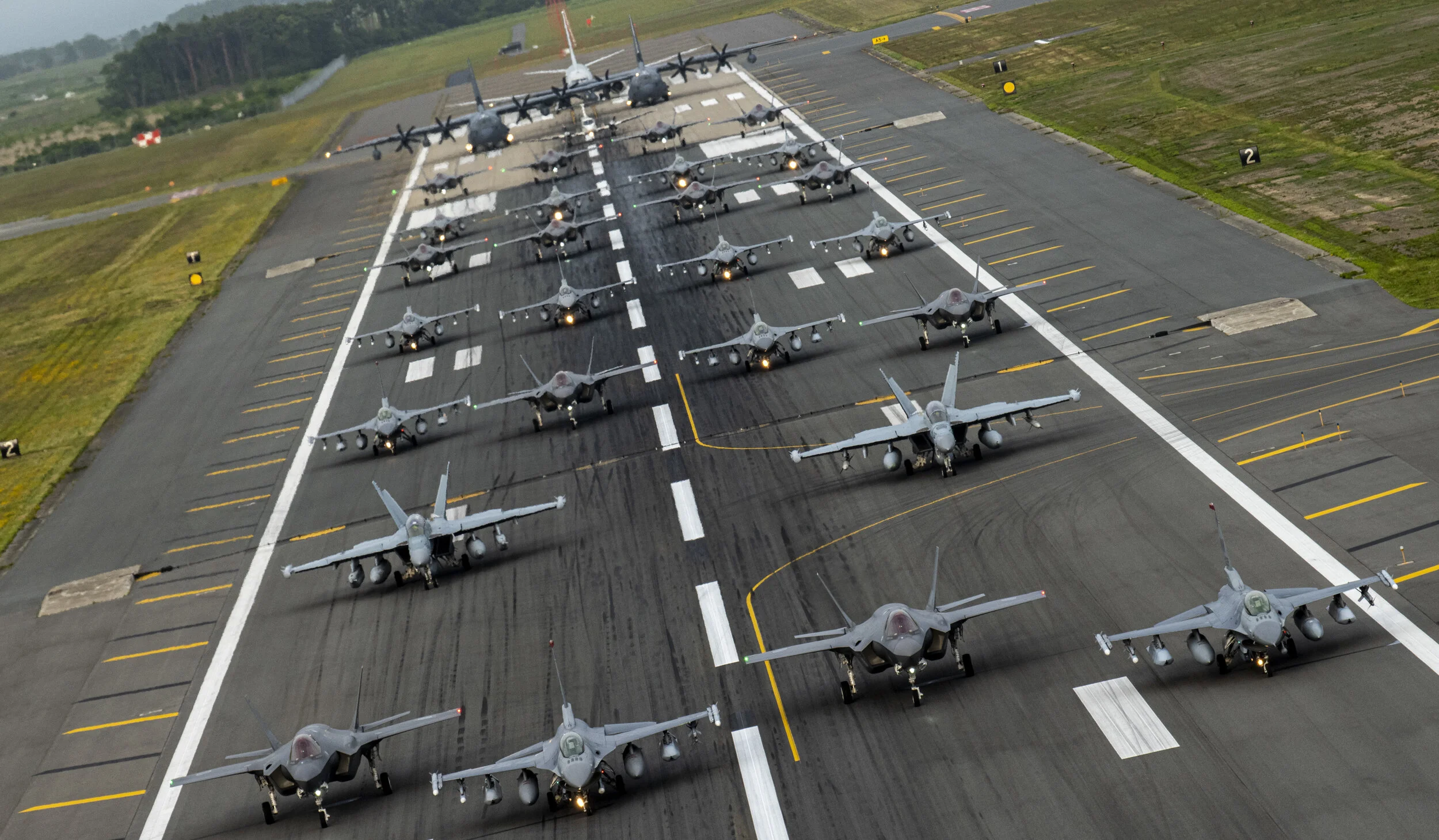The Israel-Hamas conflict shows little signs of slowing down, and the risk of a wider war remains credible. This brief examines and addresses the complex dynamics at play that could cause the crisis to expand, and it clearly defines parameters for how the U.S. should navigate the conflict. Washington should avoid direct U.S. military involvement, work with all parties to prevent escalation, and redeploy troops out of Syria—and eventually Iraq—which denies Iran leverage for broadening the war.
Moving to an offshore balancing strategy for East Asia
The balance of power in East Asia has shifted in China's favor, but it does not follow that China constitutes a major threat to the territorial integrity or political independence of all neighboring states. As DEFP Non-Resident Fellow Peter Harris argues in a new explainer, upholding peace and stability in East Asia does not require U.S. military primacy. U.S. efforts to dominate the region could backfire by intensifying the U.S.-China rivalry and plunging East Asia into a new cold war. A more sensible approach would be to move toward an offshore balancing posture that incentivizes capable regional states to provide for their own defense and deter Chinese aggression.
Reconfiguring NATO: The case for burden shifting
NATO was founded to deter a Soviet attack on Western Europe. However, U.S. military presence in Europe today lacks a clear mission beyond sustaining U.S. dominance in Europe. Washington has frequently talked about the need for burden sharing with its European allies, but a more far-reaching approach of burden shifting is needed. The explainer presents recommendations for how to implement burden shifting and explains how Russia’s invasion of Ukraine has made burden shifting even more prudent.
Questions concerning Finnish membership in NATO
Admitting Finland into NATO constitutes a permanent defense commitment by the alliance. In the case of the United States, it also entails a further extension of its nuclear umbrella. Such moves warrant a fulsome public debate, not a rush to action. U.S. forces cannot be everywhere at once. New, permanent security commitments in northern Europe should be examined relative to other U.S. global priorities and take into account Finland’s defensibility—not just now, but in the face of a revitalized, long-term Russian threat.
NATO should defend Europe, not pivot to Asia
In recent years, three of Europe’s biggest powers—the United Kingdom, France, and Germany—have issued Indo-Pacific strategies and sailed naval ships to the region to show maritime presence. European forays into the Indo-Pacific do not help the United States, but they do weaken NATO’s ability to defend Europe. The United States should discourage European deployments to the Indo-Pacific and shift the burden for the defense of Europe to Europeans.
A new and better security order for Europe
Changes in the global balance of power and in Europe’s security environment demand prevailing U.S.-Europe strategy change fundamentally. What is needed is a reduction in U.S. security commitments on the continent. A drawdown of U.S. obligations will help the U.S. preserve resources and refocus on the Indo-Pacific. It will also benefit Europeans by encouraging them to pursue strategic autonomy. However, while European strategic autonomy is important, a reduction in U.S. commitments in Europe should not be predicated on Europeans’ readiness to defend themselves.
Phantom Empire: The illusionary nature of U.S. military power
U.S. bases and troops abroad no longer translate into influence, making America’s far-flung garrison a “Phantom Empire.” The refusal of U.S. leaders to countenance drawdowns in most cases removes what leverage U.S. troops might provide over host nations. U.S. commitments in Europe, the Middle East, and East Asia yield example after example of countries whose close defense relationship with the United States does not prevent them from going their own way geopolitically.
What the Quad is, is not, and should not be
The Quad has transformed in recent years into a multilateral forum to enhance military coordination in the Indo-Pacific among the U.S., Japan, India, and Australia and to address issues of mutual concern, including China. But the Quad is not—and should not become—an anti-China alliance. Pushing the Quad toward such a goal undermines U.S. interests and risks unnecessary conflict, possibly even nuclear war.
Global Posture Review 2021: An opportunity for realism and realignment
The Biden Administration’s forthcoming Global Posture Review—a top-to-bottom examination of all overseas U.S. military bases and deployments—should jumpstart a needed shift in U.S. strategic thinking away from the leftover assumptions of the Cold War and the War on Terror. Through balancing and burden sharing in Asia, major troop reductions in Europe and the Middle East, and limiting presence deployments to preserve military readiness, the United States can realign its military posture to sustainably confront the challenges ahead.
U.S. foreign policy priorities for the next four years
The next four years are an opportunity for the U.S. to pursue a new, more realistic foreign policy. In addition to the urgent task of ending endless wars, the U.S. should focus on narrow missions in the Middle East to thwart anti-U.S. terror threats. In Europe, the U.S. should shift burdens to NATO members. And in East Asia, it should encourage allies to invest in defensive capabilities to strengthen deterrence. In all, abandoning the failed status quo in favor of a foreign policy based on restraint will mean a stronger America with more security at less cost and risk.
Revisiting the U.S. role in NATO 30 years after German reunification
October 3, 2020, marks 30 years since East and West Germany reunified. Europe today is a different continent than it was in 1990. Germany, along with many of its allies, is wealthy and capable of shouldering a larger burden for defense. A residual Cold War mentality, 30 years after German reunification, should not be permitted to undermine U.S. security and prosperity for the next 30 years. Toward this end, the U.S. should station fewer U.S. troops on the continent and halt the extension of new U.S. security guarantees through NATO.
Responsibly competing with China
Competition between the world’s two greatest powers is in some ways inevitable—but military conflict need not be. Geography, starting with the Pacific Ocean, and the positive sum outcomes of trade limit the dangers of competition with China. And U.S. allies, fortified with U.S.-supplied A2/AD defense systems and aided by other regional states, are capable of balancing a potentially expansionist China. That limits the risk of U.S.-China confrontation and the shadow it casts on cooperation in areas of overlapping interests.
Burden shifting to fix outdated alliances
U.S. alliances are outdated. Alliances that early in the Cold War served U.S. security have become permanent subsidies to allies capable of doing more. Instead of backing allies and getting them to provide for the bulk of their defense, U.S. forces too often man their front lines, encouraging allies to “free ride” on U.S. support or sometimes take provocative risks. Instead of pleading with allies to bear a greater burden, the U.S. should do less and shift burdens by reducing deployed forces.
Restraint: A post-COVID-19 U.S. national security strategy
The COVID-19 pandemic and efforts to manage it ravaged the U.S. economy and government finances, raising demand for domestic spending, cutting revenue, and increasing debt. U.S. grand strategy—long overly ambitious—should be restrained to manage these budgetary pressures. Domestic needs should take greater priority because the U.S. is fundamentally secure. Restraint prioritizes vital interests, abandons peripheral missions, shifts the burden of securing other regions to allies, and ends military overstretch—it provides more security at lower cost and aids the difficult task of domestic rebuilding.
U.S. interests in Europe and the future of NATO
U.S. allies must be held responsible for defending themselves and the global commons. During the Cold War, defending the free world from communist conquest and domination while they rebuilt their economies was necessary and proper. As those countries prospered, however, the justification for American protection waned. The Cold War’s end further eroded the foundations of perpetual alliances backed by foreign-deployed U.S. troops. Other advanced nations should share America’s global burdens instead of free-riding on us.


















